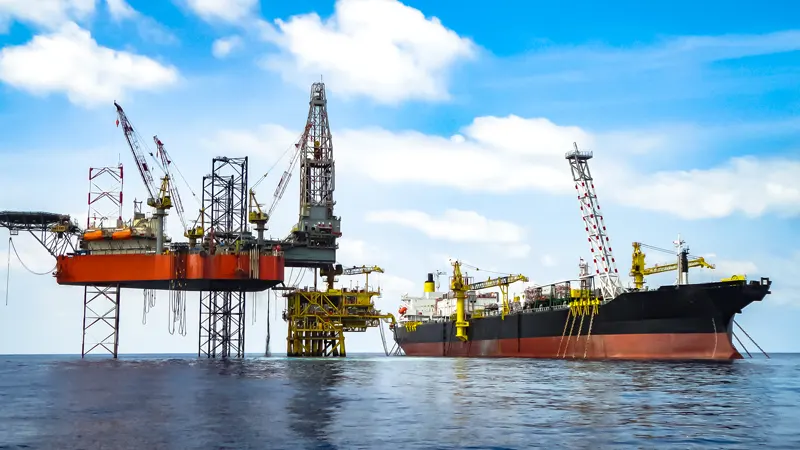
 MODEC has been awarded an Engineering, Procurement, Construction, and Installation (EPCI) contract to develop a Floating Production Storage and Offloading (FPSO) vessel for ExxonMobil Guyana's Hammerhead Project offshore Guyana, following Final Investment Decision (FID).
MODEC has been awarded an Engineering, Procurement, Construction, and Installation (EPCI) contract to develop a Floating Production Storage and Offloading (FPSO) vessel for ExxonMobil Guyana's Hammerhead Project offshore Guyana, following Final Investment Decision (FID).
Phase One of the contract, covering Front-End Engineering and Design (FEED), has already been completed.
“We are honoured to be entrusted with the full EPCI scope for Hammerhead. This award reflects MODEC’s integrated capabilities to design, build and operate—from concept and FEED through to safe execution and timely delivery of the project,” said Soichi Ide, head of Floating Production Solutions Business Unit of MODEC. “MODEC’s strategic relationship with ExxonMobil Guyana positions us to work with them and our stakeholders to create lasting value throughout the project lifecycle.”
The Hammerhead FPSO will have the initial annual average production of 150,000 barrels of oil per day (BOPD), along with associated gas and water. It will be moored at a water depth of approximately 1,025 metres.
The Hammerhead FPSO will be MODEC’s second for use in Guyana, following the Errea Wittu, which is currently being built for ExxonMobil Guyana’s Uaru project. As with the Uaru Project, MODEC will provide ExxonMobil with operations and maintenance services for the FPSO for 10 years from first oil.
The US$6.8 billion Hammerhead project, due to start up in 2029, is the seventh project on the Stabroek block, and will include 18 production and injection wells.
ExxonMobil is producing approximately 650,000 barrels of oil per day from the Stabroek block. With the recent successful startup of a fourth FPSO, the ONE GUYANA, the company anticipates growing production to more than 900,000 barrels of oil per day by the end of the year. Construction is underway for the fifth and sixth approved projects, Uaru and Whiptail, with Uaru anticipated to start production in 2026, and Whiptail is anticipated for startup in 2027.
ExxonMobil affiliate ExxonMobil Guyana Limited is operator and holds 45% interest in the Stabroek block. Hess Guyana Exploration Ltd. holds 30% interest, and CNOOC Petroleum Guyana Limited holds 25% interest.
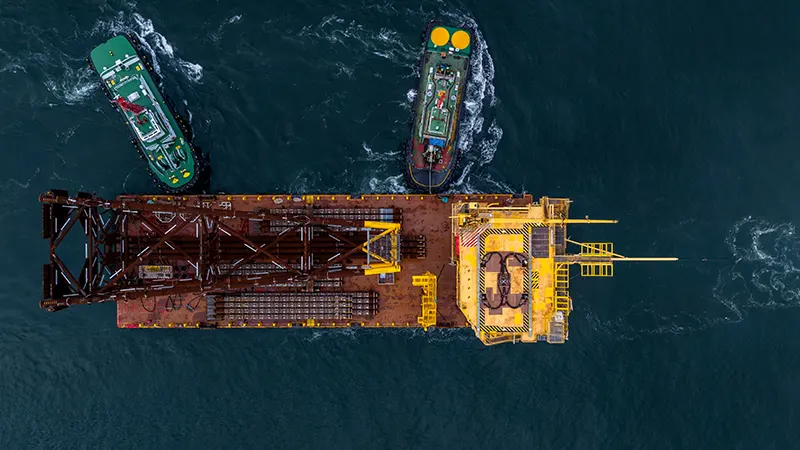
 Saipem has officially received the go-ahead from ExxonMobil Guyana Limited to commence full-scale operations for the Hammerhead oil field development project. This offshore venture, located around 1,000 metres deep in the Stabroek block off Guyana, is valued at approximately US$500mn.
Saipem has officially received the go-ahead from ExxonMobil Guyana Limited to commence full-scale operations for the Hammerhead oil field development project. This offshore venture, located around 1,000 metres deep in the Stabroek block off Guyana, is valued at approximately US$500mn.
The partnership between Saipem and ExxonMobil began earlier this year, when Saipem was granted a Limited Notice To Proceed (LNTP) on April 2, 2025. This initial step allowed Saipem to begin detailed engineering work and procure essential long-lead equipment. Now, following the necessary regulatory approvals and ExxonMobil’s final investment decision, Saipem is set to push ahead with the project, with offshore operations slated for 2028.
The scope of Saipem’s work will involve engineering, procurement, construction, and installation (EPCI) of key subsea infrastructure, including umbilical, riser, and flowline (SURF) structures. These components will be critical for the production facilities and the gas export system needed for the Hammerhead oil field. The project site is located approximately 200 km from the Guyanese coastline.
Saipem plans to deploy a range of specialised equipment for this ambitious project, including the Saipem FDS2 and the Shen Da, which is part of the company's chartered vessel fleet. The logistics will be managed through the Vreed-en-Hoop Shorebase Inc. (VEHSI), ensuring local job creation and business opportunities in Guyana.
With this major milestone, Saipem solidifies its strategic partnership with ExxonMobil in Guyana, further strengthening its presence in the region. Saipem’s commitment is also reflected in its previous contracts with ExxonMobil for other projects in the Stabroek block, including Liza Phase 1 and 2, Payara, Yellowtail, UARU, and Whiptail.
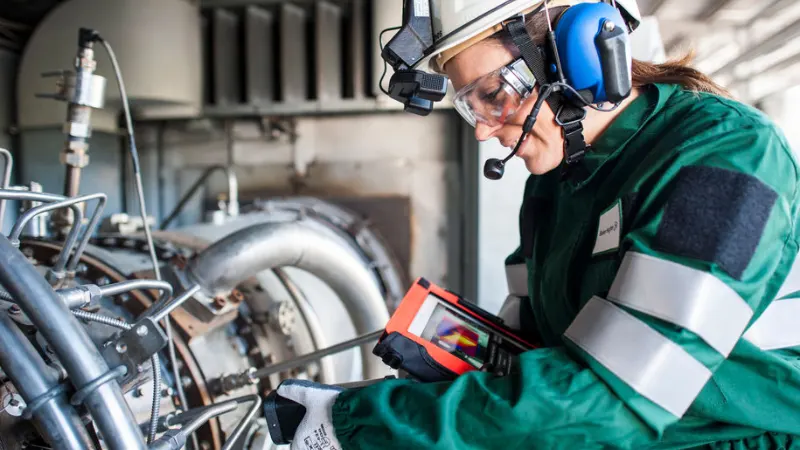
 The energy technology company has been awarded a significant deal from Petrobras to suppler up to 50 subsea tree systems and associated services to support offshore oil and gas production across multiple fields in Brazil.
The energy technology company has been awarded a significant deal from Petrobras to suppler up to 50 subsea tree systems and associated services to support offshore oil and gas production across multiple fields in Brazil.
Under the agreement, Baker Hughes will manufacture Petrobras’ pre-salt standard subsea tress, as well as subsea distribution units, in-line trees and vertical connection systems, to enable safe, reliable and efficient production on the seafloor.
In addition, topside control cabinets will provide monitoring and control of subsea equipment from floating production storage and offloading vessels.
Amerino Gatti, Executive Vice President of Oilfield Services & Equipment at Baker Hughes, said, “Baker Hughes has a history of innovation and operational excellence throughout our decades of collaboration with Petrobras. This agreement opens new opportunities to accelerate growth in Brazil’s offshore energy sector, and we look forward to helping Petrobras efficiently and responsibly develop the hydrocarbon resources that power Latin America.”
The modern subsea systems will enhance recovery in fields including Albacora, Jubarte and Barracuda-Caratinga. They will also be deployed in more recent pre-salt developments, including the Mero and Buzios fields, to optimise production in new wells.
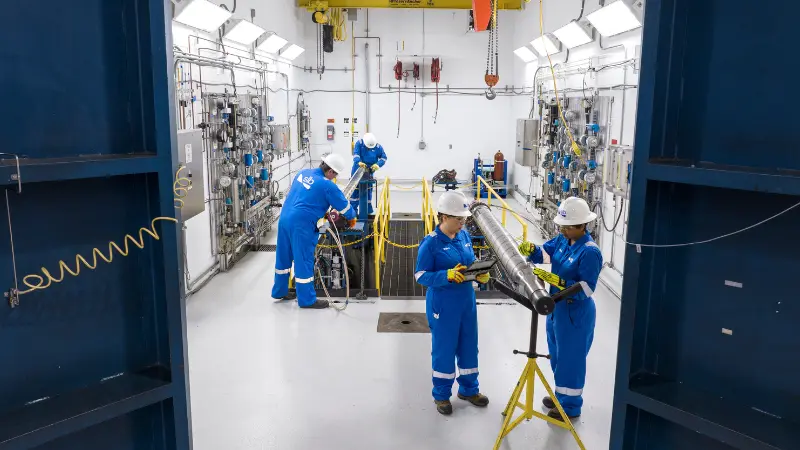
 Global technology company SLB has announced a major contract with Petrobras to provide services and technology for up to 35 ultra-deepwater wells in the Santos Basin.
Global technology company SLB has announced a major contract with Petrobras to provide services and technology for up to 35 ultra-deepwater wells in the Santos Basin.
The wells target large oil and gas reserves beneath thick salt layers located up to 2,000 metres below the surface.
As part of its project scope, SLB will deploy advanced electric completions technologies and digital solutions that deliver precise, real-time production intelligence and improved reservoir management to produce the hard-to-access resources.
Paul Sims, President of Production Systems, SLB, said, “This will help Petrobras drive greater reliability, system uptime and production performance in those fields – supporting Brazil’s energy security and economic growth ambitions.”
Work is scheduled to begin by mid-2026 and will feature advanced services and technology for SLB’s completions portfolio, including the Electris high-flow-rate interval control valves.
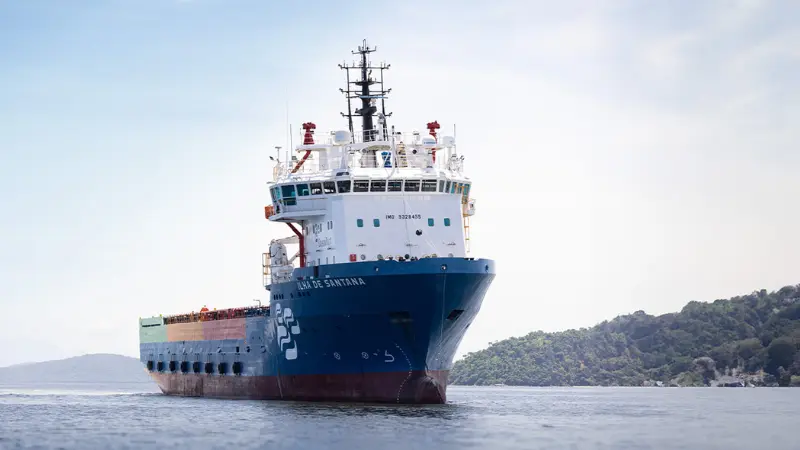
 OceanPact has signed a four-year contract with Petrobras worth R$310mn to charter the Ilha de Santana platform supply vessel.
OceanPact has signed a four-year contract with Petrobras worth R$310mn to charter the Ilha de Santana platform supply vessel.
The ship will be used for logistics and emergency response support for Petrobras along the Brazilian coastline.
Earlier this year OceanPact announced new contracts with Petrobras worth R$650mnto charter three oil spill response vessels to be used in operations off the Brazilian coast to provide emergency readiness in the event of environmental incidents.
Currently, OceanPact has a fleet of 28 vessels made up of oil spill response, ROV support, platform supply, research, multi-purpose support and anchor handling tug supply vessels, as well as othering a largest inventory of offshore emergency response equipment in Latin America.
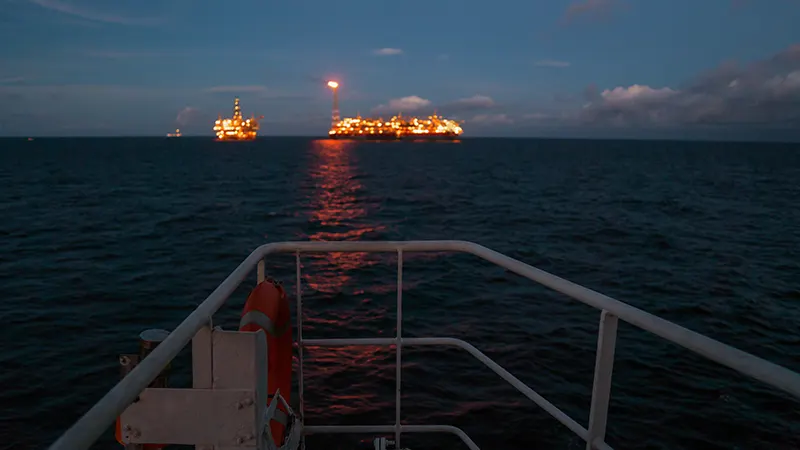
 To advance the Maromba field development offshore Brazil, BW Energy will refurbish and redeploy the Maromba floating production storage offloading vessel (FPSO).
To advance the Maromba field development offshore Brazil, BW Energy will refurbish and redeploy the Maromba floating production storage offloading vessel (FPSO).
The oil and gas operator, alongside China Export & Credit Insurance Corporation (Sinosure), has successfully completed a US$365mn project finance facility, to fund the vessel utilisation.
The company will also be acquiring the Super Gorilla class jack-up rig BW MAROMBA B rig via a short-term lease with Minsheng Financial Leasing Co.
The project finance facility was significantly oversubscribed and will cover approximately 80% of the total FPSO project cost and is provided by a syndicate comprising The Export-Import Bank of China (CEXIM), Abu Dhabi Commercial Bank PJSC (ADCB), Arab Banking Corporation B.S.C. (Bank ABC), National Bank of Fujairah (NBF), and Commercial Bank of Dubai (CBD). CEXIM, ADCB and Bank ABC acted as Mandated Lead Arrangers, and ADCB and Bank ABC acted as Structuring and Advisory and Documentation Banks. Bank ABC is also acting as Technical Advisory Bank.
The facility has an interest rate of SOFR plus a margin of 2.8%, and is structured as a project finance loan with progressive drawdowns during the construction period followed by a 6.5-year amortisation period after project completion. A commitment fee of 40% of the margin applies to undrawn amounts until completion.
“The closing of this financing marks an important milestone in the Maromba development, demonstrating our ability to secure competitive long-term funding and build strong relationships with a diversified group of new lenders from Middle East and Asia. Furthermore, it reflects our strategy of reusing existing production infrastructure, which not only reduces overall development costs and environmental footprint but also enables access to cost-effective ECA-based financing,” said Brice Morlot, CFO of BW Energy.
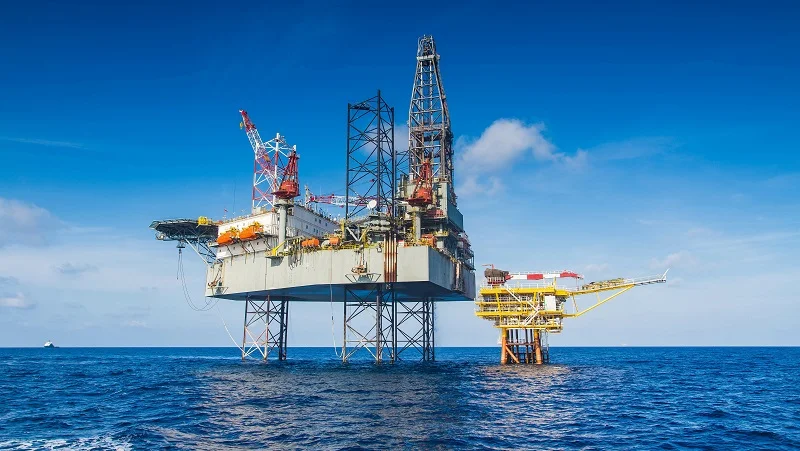
 TechnipFMC has been awarded two subsea contracts by Petrobras for flexible pipe to be deployed in the Campos and Santos basins.
TechnipFMC has been awarded two subsea contracts by Petrobras for flexible pipe to be deployed in the Campos and Santos basins.
The first award is a substantial contract thought to be worth between US$250mn and US$500mn to design, engineer, and manufacture flexible gas injection risers. This high-technology solution will sustain reservoir pressure and enhance production efficiency through high-capacity gas reinjection in pre-salt formations in the Santos Basin.
The second award, which followed a competitive tender, is a ‘significant’ (US$75mn-US$250mn) contract to design, engineer, and manufacture flexible risers and flowlines for deployment on assets in the Campos Basin.
Jonathan Landes, president, Subsea at TechnipFMC, commented, “As Petrobras unlocks Brazil’s energy resources, we are proud to provide technology and expertise that support some of their most technically challenging projects. TechnipFMC is a subsea innovation leader and continues to advance flexible technology to support new projects and enhance value for its clients.”
Manufacturing will be carried out at TechnipFMC’s flexibles manufacturing facility in Açu, Brazil.
TechnipFMC has been involved in Brazil for nearly 70 years, and has extensive in-country operations, delivering advanced technological solutions while supporting the development of local economies.
In March, the company was awarded a major integrated Engineering, Procurement, Construction, and Installation (iEPCI) contract by Shell worth more than US$1bn for its Gato do Mato greenfield development offshore Brazil, utilising Subsea 2.0 configure-to-order (CTO) subsea production systems.
In September 2024, TechnipFMC was awarded two subsea contracts by Petrobras for the pre-salt fields offshore Brazil, the first todesign, engineer, and manufacture riser flexible pipe and the second to design, engineer, and manufacture subsea production systems to be deployed on the Atapu 2, Sepia 2, and Roncador projects.
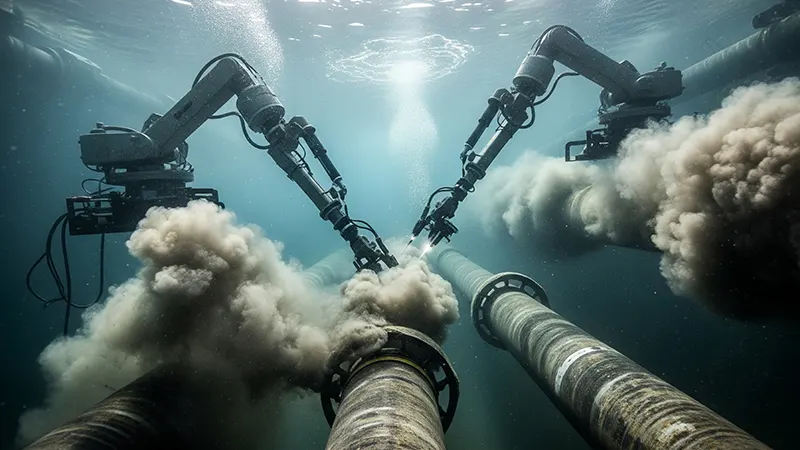
 Oceaneering International, Inc. recently announced that its Brazilian subsidiary, Marine Production Systems do Brasil LTDA (MPS), has secured multiple subsea robotics contracts with Petróleo Brasileiro S.A. (Petrobras). These contracts, awarded during the second quarter of 2025 after a competitive bidding process, are valued at approximately $180 million in total revenue.
Oceaneering International, Inc. recently announced that its Brazilian subsidiary, Marine Production Systems do Brasil LTDA (MPS), has secured multiple subsea robotics contracts with Petróleo Brasileiro S.A. (Petrobras). These contracts, awarded during the second quarter of 2025 after a competitive bidding process, are valued at approximately $180 million in total revenue.
Under these agreements, Oceaneering will supply work-class remotely operated vehicle (ROV) services, specialised tooling packages, and survey support on several anchor handling and ROV support vessels engaged in Petrobras projects off the coast of Brazil. The scope of work covers a wide range of offshore activities, including inspection, maintenance, repair, and decommissioning operations. Additionally, Oceaneering will provide services related to surface and subsea positioning, FPSO hook-ups, mooring inspections, and pile installations.
Each contract is set to last for four years, with options for possible extensions. Work under the contracts is expected to begin at various times throughout the third and fourth quarters of 2025 and continue into the first quarter of 2026.
Martin McDonald, Senior Vice President of Subsea Robotics at Oceaneering, commented: “As a global leader in ROV services, we are excited to further expand our presence in Brazil. These contracts provide visibility into our backlog over the next several years, reinforcing our outlook for resilient offshore energy markets. This visibility also allows us to strategically plan and allocate resources, ensuring safe, consistent, and reliable performance. We are proud to continue our support of Petrobras’ offshore projects and contributions to the development of Brazil’s energy sector.”
Oceaneering has been operating in Brazil for nearly 30 years. Through MPS, the company runs multiple facilities including centres for ROV, survey, subsea intervention tooling, and engineered solutions, along with an Onshore Remote Operations Centre in Macaé. The company also manages an umbilical manufacturing plant located in Niterói.
This press release contains forward-looking statements concerning anticipated revenue, contract durations, commencement dates, and work scopes. These statements are based on current expectations but are subject to risks and uncertainties, such as market conditions and counterparty performance. Actual results may differ materially from those projected. For more details on risks, refer to Oceaneering’s latest filings with the Securities and Exchange Commission.
Oceaneering is a global technology company providing engineered services, products, and robotic solutions to offshore energy, defence, aerospace, and manufacturing sectors.
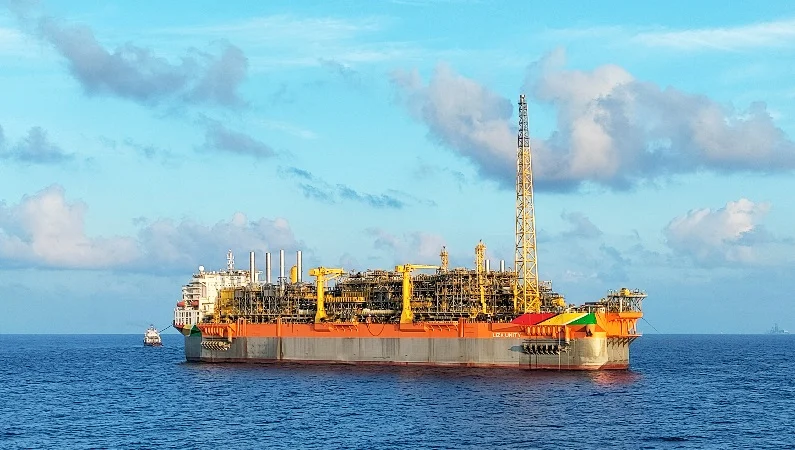
 ExxonMobil Guyana has started production at Yellowtail field, the fourth oil development in Guyana’s offshore Stabroek block.
ExxonMobil Guyana has started production at Yellowtail field, the fourth oil development in Guyana’s offshore Stabroek block.
Yellowtail’s ONE GUYANA floating production storage and offloading (FPSO) vessel joins the Destiny, Unity, and Prosperity FPSOs, bringing total installed capacity in Guyana to more than 900,000 barrels of oil per day.
“Yellowtail’s ahead-of-schedule startup is a significant milestone for ExxonMobil and the people of Guyana,” said Dan Ammann, President of ExxonMobil Upstream Company. “With Guyanese making up more than 67% of the country’s oil-and-gas workforce and over 2,000 local businesses engaged, this project reflects our deepening roots in the country and our shared commitment to long-term, inclusive growth.”
The ONE GUYANA is the largest FPSO on the Stabroek block to date, with an initial annual average production of 250,000 bopd and a storage capacity of two million barrels. Oil produced from the FPSO will be marketed as Golden Arrowhead crude.
By 2030, ExxonMobil Guyana expects to have total production capacity of 1.7 million oil equivalent barrels per day from eight developments.
ExxonMobil has experienced remarkable success in Guyana’s deepwater developments, achieving record production in 2024. In five years, the company has started up four complex offshore mega-projects under budget and ahead of schedule – while advancing plans for four additional projects by the end of the decade.
ExxonMobil Guyana Limited operates the Stabroek block and holds a 45% interest, with Hess Guyana Exploration Ltd. holding 30%, and CNOOC Petroleum Guyana Limited holding 25%.
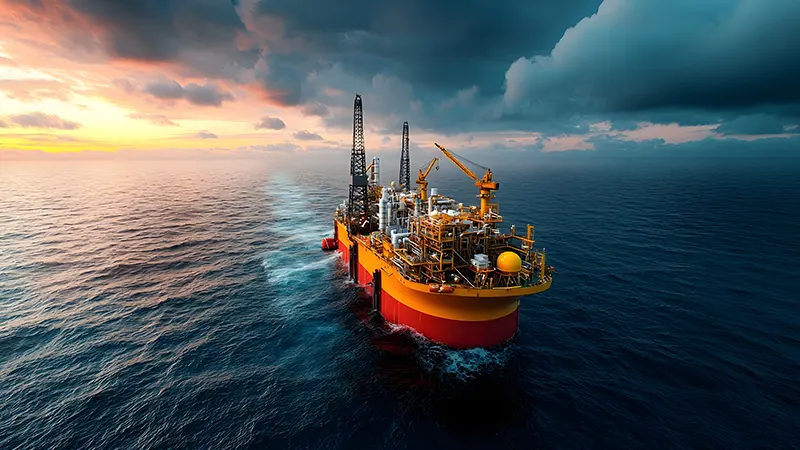
 Golar’s 3.5MTPA MK II FLNG will be deployed for contract start-up in Argentina during 2028, in line with a final investment decision following definitive agreements executed by Argentinian gas producers consortium, Southern Energy SA, and Golar in May 2025.
Golar’s 3.5MTPA MK II FLNG will be deployed for contract start-up in Argentina during 2028, in line with a final investment decision following definitive agreements executed by Argentinian gas producers consortium, Southern Energy SA, and Golar in May 2025.
The key commercial terms for the 20-year charter agreement include net charter hire to Golar of US$400mn per year, plus a commodity linked tariff component of 25% of FOB prices in excess of US$8/mmbtu.
The FLNG, currently under conversion in China, will sail to Argentina following her redelivery. The MKII FLNG will be moored in the San Matías Gulf near the FLNG Hilli, which is expected to start its 20-year charter with SESA during 2027. Combined, the two units have a nameplate capacity of 5.95MTPA, and the project expects to benefit from significant operational efficiencies and synergies from two FLNGs in the same area.
Regulatory and related customary closing conditions for the MKII FLNG project is expected by this year.
Golar’s Chief Executive Officer, Karl Fredrik Staubo, said, “Today’s FID marks another milestone for SESA in establishing Argentina as an attractive LNG exporter and building on Golar’s position as the market leading FLNG service provider. FID solidifies US$8bn of net earnings visibility over 20 years to Golar, with attractive upside potential in the FLNG commodity tariff component and through our shareholding in SESA. We look forward to continuing to develop the SESA partnership into a leading LNG exporter in South America.”
The SESA consortium comprises Pan American Energy (30%), YPF (25%), Pampa Energia (20%) and Harbour Energy (15%), as well as Golar (10%).
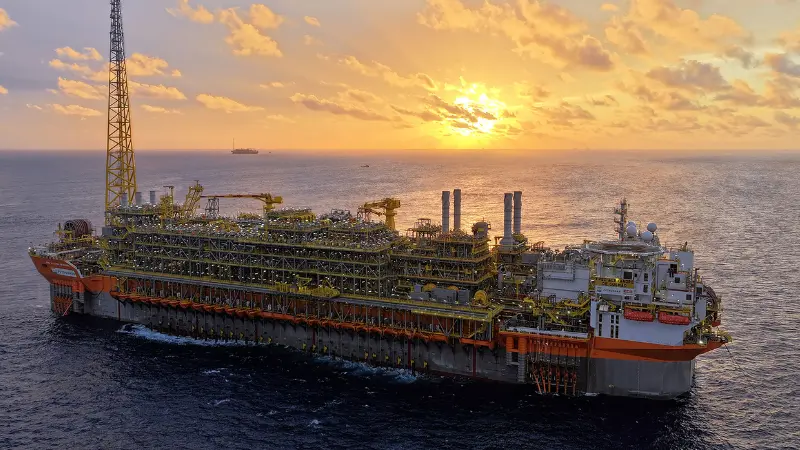
 Petrobras’ average oil, natural gas and natural gas liquids production grew by 5% in Q2 2025, reaching 2.91 million barrels of oil equivalent per day.
Petrobras’ average oil, natural gas and natural gas liquids production grew by 5% in Q2 2025, reaching 2.91 million barrels of oil equivalent per day.
The increased performance was mainly attributed to the ramp-up of FPSOs in the Búzios, Jubarte, Marlim and Voador fields; the peak production of the Marechal Duque de Caxias field, and the entry into production of the FPSO Alexandre de Gusmão in the Mera field.
In Q2, 14 new production wells came into operation; seven in the Campos Basin and seven in the Santos Basin. The FPSO Alexandre de Gusmão marked the fifth platform in the Mera field within the Santos Basin and began operations on 24 May, 2025, in a major step forward in Brazil’s production from the pre-salt layer. The gas injection also began in 25 June, 2025. The platform has the capacity to produce 180,000 barrels of oil per day, in addition to compressing and reinjecting 12 million cubic metres of gas per day.
The FPSO Marechal Duque de Caxias entered production on 30 October, 2024, in the Mero field, reached peak production on 19 May by producing 180,000 barrels of oil per day. In total, the unit will have 15 wells.
Last month the P-78 platform vessel left the Singapore shipyard and is en-route to Brazil, where production start-up is scheduled for the second half of the year. The platform will be the seventh until to be installed in the Búzios field in the Santos Basin pre-salt layer, with a production capacity of 180,000 barrels of oil per day, in addition to compressing up to 7.2 million cubic metres of gas per day.
Petrobras has achieved serval production records this quarter, including total operated production in Q2 2025 of 4.19 MMboed (previous record was 4.05 MMboed in Q4 2023; total own pre-salt production at 2.39 MMboed (previous record 2.33 MMboed in Q4 2023); and the Mero field platforms broke the operated production marks of 600,000 bpd of oil on 6 July, 2025.
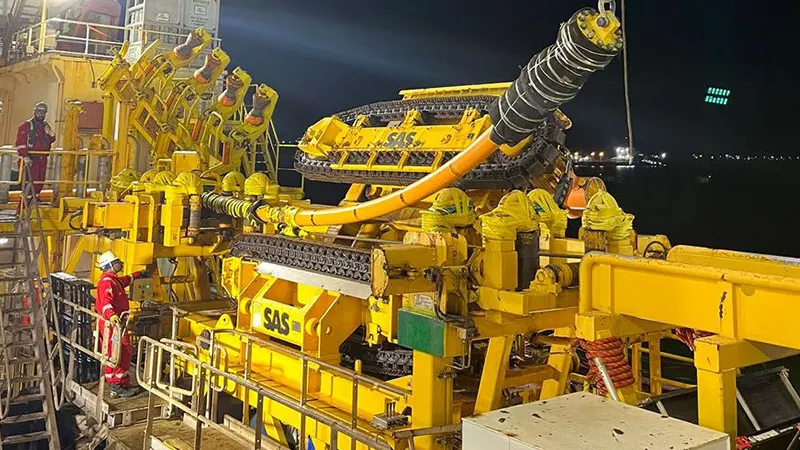
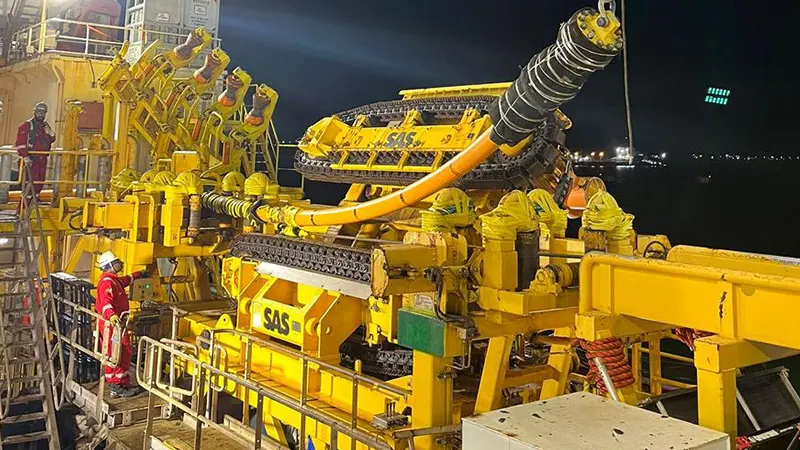 Petrobras operations offshore Brazil at water depths of around 1,500 m saw the deployment of thermoplastic composite pipes by Strohm as part of its first field trials.
Petrobras operations offshore Brazil at water depths of around 1,500 m saw the deployment of thermoplastic composite pipes by Strohm as part of its first field trials.
Conducted last month in the Campos Basin, the testing and engineering assessments have reflected exceptional durability under harsh offshore environment following a smooth installation process in lines with the standard flexible pipe installation vessels which Petrobras' fleet are originally equipped with.
During the trial run, Strohm's TCP followed the exact methodologies that drive conventional flexible pipes, while keeping the Brazilian market in mind.
The pipe has undergone crushing and deep immersion performance (DIP) tests, as well as subsea first and second-end vertical connection tests. As part of the process, the pipe was installed in a catenary configuration in which it was kept for 24 hours to assess its behaviour under normal operational conditions.
The tested TCP is suitable for post-salt wells and the tests results provided valuable learnings that will support the qualification of TCPs for pre-salt applications as well. Since the technology is resistant to stress corrosion cracking caused by CO₂ - one of the major challenges in the area, it shows strong potential as a definitive solution for the pre-salt cluster offshore Brazil
Furthermore, TCP has a significantly smaller carbon footprint compared to conventional flexible pipes due to the materials used and its light weight, leading to lower transportation and installation costs. It can be installed using vessels currently available in the market, and further, due to its light weight, also enables simpler and more cost-effective installation methods to be deployed, such as the subsea pallet.
Renato Bastos, VP Brazil at Strohm, said, “This successful phase marks the culmination of a remarkable collaboration between Petrobras and Strohm throughout the last few months and the field trial results are proof of the innovation and quality that TCP brings to the industry. The technology has the potential to transform the global deepwater market and unlocks a huge potential for us in Brazil.
“This is the first offshore trial for Petrobras to include thermoplastic composite pipes, and it’s a testament to our companies’ longstanding relationship. The success of the field trial paves the way for wider adoption of our technology in the country, keeping us on track to fulfil our commitment to becoming the leading composite pipe supplier to Petrobras, as well as preparing for local production.”
Gustavo Calazans, Subsea Engineering General Manager, added, "This is an important milestone of our Subsea Industrialization Program in which Strohm is a key partner. This result strongly contributes to accelerate the installation of a new plant in Brazil bringing not only technological advances, but also competitiveness, an increase in local content, and cost reduction for Petrobras' projects. As the largest flexible pipe consumer in the world and with a strong demand forecast in the coming years, we welcome Strohm's entry into the Brazilian market with great expectations."
Page 1 of 10
Copyright © 2025 Offshore Network